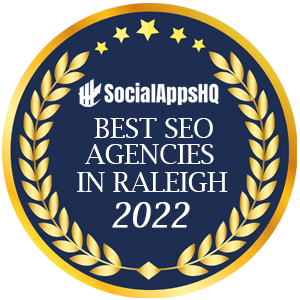Crafting a successful content strategy for your business isn’t just about throwing together some blog posts and social media updates. It’s about creating a cohesive plan that aligns with your business goals and speaks directly to your target audience. You need a well-thought-out content strategy to truly stand out and engage your audience. In this blog post, we’ll explore a content strategy, why it’s essential, and how you can develop one for your business.
What is a Content Strategy?
A content strategy is a comprehensive plan outlining how to create, publish, and manage content to meet your business objectives. It involves understanding your audience, setting clear goals, and determining the most effective content types. A robust content strategy covers everything from the type of content you create and the channels you use to distribute it to the metrics you track to measure success.
Why Is Content Strategy Important?
Every piece of content conveys information, makes an impression, and has an impact. Together, your content tells the overall story about your business and what sets you apart–your area of expertise, mission, and niche in the marketplace.
Developing a comprehensive strategy for your content ensures that you’re telling a cohesive and consistent narrative that should support your brand every time you publish.
With an effective content strategy, you create opportunities to educate, draw your audience in, attract new clients, and keep existing clients engaged. Strong content establishes you as an authority in your field and shows your audience why you stand out and why they should select your business over a competitor’s.
An effective content strategy:
Aligns with Business Goals:
A content strategy ensures that all content efforts are aligned with your business objectives, helping you achieve your goals more effectively.
Improves Efficiency:
By planning, you streamline content creation and distribution, saving time and resources.
Enhances Consistency:
A well-defined strategy helps maintain a consistent voice and style across all content, strengthening your brand identity.
Engages Audience:
Targeted content that addresses your audience’s needs and preferences is more likely to engage and retain them.
Measures Success:
A clear strategy allows you to set measurable goals and track performance, allowing you to adjust tactics as needed.
Sets your Business Apart from Competitors:
A unique and targeted content strategy helps distinguish your brand from competitors.
Content Strategy vs Content Marketing: What’s the Difference?
It’s easy to confuse content strategy with content marketing, but they serve different purposes.
- Content Strategy is the overarching plan that defines your content goals, audience, and approach. It’s about setting the stage for what content you’ll create and why.
- Content Marketing is the execution of your content strategy. It includes creating, publishing, and promoting content to attract, engage, and convert your audience.
Think of content strategy as the blueprint and content marketing as the construction.
Elements of a Content Strategy Plan
A comprehensive content strategy plan includes several key elements:
-
-
- Goals and Objectives: Clearly defined business goals and specific objectives for your content.
- Target Audience: Detailed understanding of your target audience, including demographics, preferences, and pain points.
- Content Audit: Analysis of existing content to identify strengths, weaknesses, and gaps.
- SEO (Search Engine Optimization) Strategy: Techniques to optimize content for search engines to increase visibility and reach.
- Content Themes and Topics: Core themes and topics that will guide your content creation.
- Content Formats: Selection of the most effective content types (blogs, videos, infographics, etc.).
- Editorial Calendar: A schedule for publishing content.
- Distribution Channels: Platforms where you’ll share your content (social media, email, website, etc.).
- Measurement and Analytics: Metrics and KPIs (key performance indicators) to track the performance of your content and strategy effectiveness.
- Governance: Guidelines for content creation, approval processes, and roles and responsibilities within the team.
-
1. Define Your Goals
Start by defining your content goals. Are you aiming to increase brand awareness, generate leads, or drive traffic to your website? Clear goals will guide your content creation process and help you measure success.
2. Understand Your Audience
Get to know your audience’s demographics, preferences, and pain points. Use tools like Google Analytics, social media insights, and surveys to gather data. The better you understand your audience, the more effectively you can tailor your content to meet their needs.
3. Conduct a Content Audit
Review your existing content to identify what’s working and what’s not. What’s performing well? What’s falling flat? This will help you understand gaps in your current strategy and areas for improvement.
4. Develop a Content Plan
Based on your goals and audience research, brainstorm key themes and topics that resonate with your target audience. Outline the types of content you’ll create (blogs, videos, infographics, social media posts, etc.) and set a publishing schedule. Create a content calendar to organize your ideas and plan your production schedule.
5. Create and Optimize Content
When creating content, focus on quality over quantity. Produce high-quality, valuable content that addresses your audience’s needs and aligns with your brand voice. Use SEO best practices to optimize your content for search engines. This includes using relevant keywords, crafting compelling headlines, and incorporating meta descriptions.
Remember the visuals: We live in a visual world where eye-catching images, graphics, and videos can make a huge difference. High-quality visuals grab attention and help convey your message more effectively. Working with a professional agency can ensure your content is visually appealing and professionally designed, making your brand stand out.
6. Promote Your Content
Decide where you’ll share your content. This could include your website, social media platforms, email newsletters, etc. Tailor your distribution strategy to where your audience spends their time.
7. Measure and Analyze Performance
Track your content’s performance using tools like Google Analytics, social media analytics, and other tracking tools. Look at metrics such as page views, engagement, and conversion rates to see what’s working and what needs improvement.
8. Refine and Adapt Your Strategy
Content strategy is not a set-it-and-forget-it task. Continuously monitor performance, gather feedback, and make data-driven adjustments to improve your strategy over time.
Questions to Ask When Creating a Content Strategy
To ensure your content strategy is comprehensive and effective, ask yourself these key questions:
- What are our business goals, and how can content support them?
- Who is our target audience?
- What are our audience's pain points and interests?
- What type of content resonates most with our audience?
- What content do we currently have, and how is it performing?
- What gaps exist in our current content offering?
- Which channels should we use to distribute our content?
- How often should we publish new content?
- How will we optimize our content for search engines?
- What resources do we need to create high-quality content?
- How will we measure the success of our content?
- Who will be responsible for creating, approving, and managing content?
Why Work with a Marketing Agency to Create a Content Strategy?
Partnering with a marketing agency can be a game-changer for your content strategy, as well as your content creation. Here’s why:
-
-
- Expertise and Experience: Marketing agencies have teams of experts who specialize in different aspects of content creation, SEO, social media, and analytics. They bring years of experience and industry knowledge to the table.
- Fresh Perspectives: An agency can provide an outside perspective that you might miss when you are so close to your business. They can identify new opportunities and innovative approaches to engaging your audience.
- Access to Advanced Tools: Marketing agencies have access to the latest tools and technologies for content creation, distribution, and analytics. They can leverage these tools to enhance your content strategy and measure its success more effectively.
- Time and Resource Efficiency: Developing and executing a content strategy takes time and resources. Working with an agency frees up your internal team to focus on other core business activities.
- Consistent Execution: Agencies have established processes and workflows to ensure that your content strategy is implemented consistently and effectively, maintaining a high-quality standard across all channels.
- Scalability: As your business grows, so will your content needs. Agencies can scale their efforts to match your growth, ensuring your content strategy evolves with your business.
-
Tips for a Successful Content Strategy
-
-
- Be Consistent: Regularly publish content to keep your audience engaged.
- Stay Flexible: Be ready to adjust your strategy based on performance data.
- Engage with Your Audience: Respond to comments, encourage feedback, and build a community around your content.
- Keep Learning: Stay updated with the latest trends in content marketing and continuously refine your strategy.
-
A well-developed content strategy is your roadmap to content marketing success. You can create content that resonates and drives results by setting clear goals, understanding your audience, and continuously refining your approach. Whether you develop your strategy in-house or partner with a marketing agency, the key is to stay focused, flexible, and committed to delivering value to your audience. Working with a marketing agency can enhance this process, leveraging their expertise and resources to create a robust and effective content strategy. Start developing your content strategy today and watch your online presence grow!
Ready to transform your content strategy?
Contact Precision Marketing Partners today to discover how our tailored marketing solutions can help you achieve your goals and make your company the first choice in your community.











